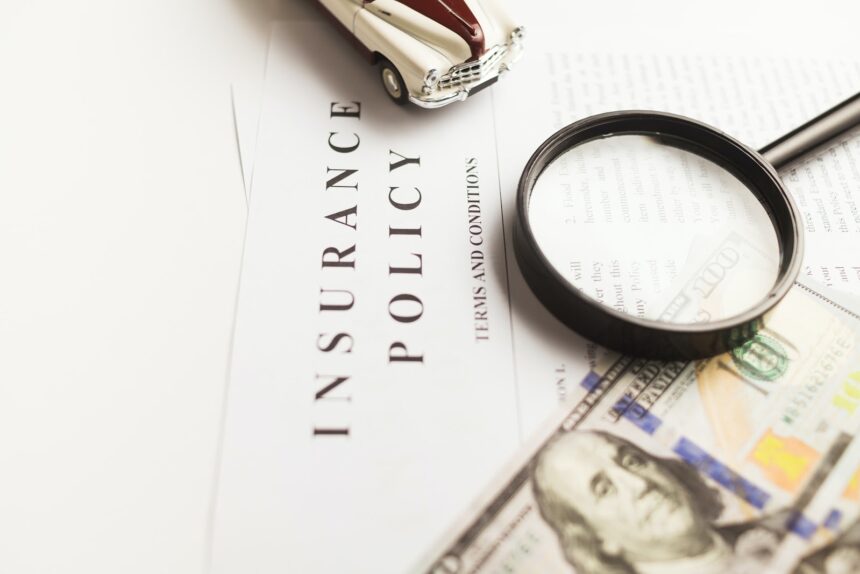Legal liabilities are one of the many costs of doing business. On average, companies all around the world incur 0.24% of their revenues on legal activities.
Even the smallest business can be targeted by a lawsuit. Any business, no matter its size or type, can face liability claims.
The good news is that it’s possible to reduce your risk of liability and the associated costs.
The bad news is that any strategy to reduce your liability claims involves time and money.
These liability claims can take many forms and cost businesses in three major ways:
- Financial compensation for victims
- Legal fees from defending lawsuits, and
- Increased insurance premiums as a result of an elevated risk profile
Read on to learn about eight ways to reduce the liability claims against your business.
1. Ensure you have adequate business insurance for general liability
General liability insurance is a type of commercial liability insurance that protects your business against third party claims.
Third party means individuals or businesses that are not related to your business.
Business insurance for general liability covers the legal costs of defending against a lawsuit if someone is injured on your property, or if they make a claim of property damage caused by your business.
It also covers your business if someone sues you for defamation or slander.
Depending on the type of business you operate and the state in which you operate, you need a certain amount of liability coverage.
Due to its importance, you should factor in liability coverage as you determine how much insurance coverage your business needs overall.
There are many factors with which you determine how much liability coverage you require.
For instance, a contractor working on-site is prone to causing more damage to the property of their customer than an architectural engineer who has to develop a map of that property.
Similarly, a contractor hired to construct a 10-storey building is prone to causing more damage to the premises than a contractor hired for a few-room house.
So, it depends on the scale of your business operations and the type of business operations to determine the amount of liability coverage you must insure your business for.
2. Know your basic rights and obligations
One of the best ways to defend against a liability claim is to be fully aware of your rights and obligations under the law.
It’s recommended that you research the laws of your state to become familiar with your basic rights and responsibilities.
Some common areas of liability for businesses include:
- Discrimination
Discrimination laws aim to protect people in a variety of areas, including employment, housing, and access to goods and services.
Business owners must know their obligations and be careful to avoid discriminating against people who have a protected characteristic, such as a person’s race, religion, gender, or disability.
- Defamation
This refers to making false statements that damage a person’s reputation. Businesses must be cautious about making comments that can be interpreted as false and that may negatively affect another person.
- Product liability
Businesses are expected to sell safe products. If a product causes damage or injury due to a manufacturing defect, a design flaw, or an insufficient warning, the product’s manufacturer is liable for damages.
In 2020, product liability cases had the highest damages award, at $7,058,106, among all other personal injury cases such as medical malpractice cases or business negligence cases.
3. Keep accurate and thorough records
Depending on the nature of your business, you may not be expected to keep every receipt for every purchase you make.
However, if your business is engaged in certain types of activities, having extensive and accurate records could save you from a liability claim.
Some businesses with particularly meticulous record-keeping policies include healthcare providers and financial institutions.
Hospitals and clinics that provide medical services are expected to keep detailed records of every patient visit, diagnosis, and treatment.
Financial institutions must also keep records of their customers’ financial transactions.
If a customer makes a complaint or a regulatory body initiates an audit, these businesses must be able to produce thorough records to substantiate their actions.
4. Maintain the integrity of your products or services
Be proactive in checking the quality of the products you sell and the services you provide.
Take steps to ensure that they meet or exceed your customers’ expectations.
If you receive a complaint about a product or service, investigate it thoroughly and take action if it’s warranted.
If you discover a recurring problem, take steps to correct it and notify your customers.
Be sure to follow up with them, and make them aware of the steps you’ve taken to rectify the situation.
Keep in mind that if you sell a flawed product or service, you may be liable for any injuries they cause.
Even if you’ve taken all reasonable steps to ensure that the product or service is safe, a customer can make a claim against you.
It’s helpful to review your state’s product liability laws to understand your potential liability.
5. Be proactive in responding to customer service issues
Another way to avoid a liability claim before it happens is by being proactive in responding to customer complaints.
Accept complaints graciously, and take them seriously.
Respond promptly to customer complaints with a sincere and prompt apology. If appropriate, offer a refund or reimbursement for any damages caused.
If a customer is making unreasonable demands, explain why you can’t meet them and suggest how they can pursue their complaint with the regulatory authorities.
If multiple customers complain about the same issue, you must investigate further and determine if there’s a systemic problem that may lead to other claims. If so, address the problem as quickly as possible.
If a customer’s complaint is frivolous or false, don’t react with anger or hostility. Instead, respond calmly and professionally, and explain why the complaint is unfounded.
6. Train employees to avoid liability claims
In 2017-18 in the UK, 626,531 workplace injuries were reported, and the employers had to bear costs amounting a whopping £3.0 billion.
Businesses can save these costs in the long run by training their employees to minimize the risk of injury claims.
Some industries are at higher risk of injury than others.
For example, food service, health care, and manufacturing all have workers who face a higher risk of injury than, say, financial services employees.
When hiring employees for positions that are likely to involve injury, use screening tools to identify candidates who are best suited for the job.
Train your employees on how to do their jobs as safely as possible.
Give them the resources they need to perform their jobs safely and responsibly.
Be sure to conduct regular safety audits, and correct any hazards you find.
You can’t prevent every injury from occurring, but you can reduce the likelihood that an employee will make a claim against you by providing them with the tools and training they need to do their jobs safely.
7. Invest in comprehensive security measures
If your business deals with sensitive information or valuable goods, you’re likely required to comply with security standards set by state laws.
If you’re a financial institution, hospital, utility company, or other critical service provider, you must be required to comply with these security standards.
These standards may require you to have certain security measures in place, like alarm systems and surveillance cameras.
If you fail to comply with these security standards, you may face a liability claim if sensitive information is leaked or if a break-in occurs at your facility.
8. Be honest with your customers as well as with your employees
Businesses that are open and honest about their practices and policies are less likely to be sued or face other liability claims.
Resist the urge to cut corners or ignore rules that may sound like red tape but are designed to protect customers.
Be careful not to make promises that you can’t keep. If you make a promise to a customer, make sure you follow through on it. If you make a promise to an employee, keep it.
In both cases, any breach of trust could open you up to a liability claim.
Burger King, a renowned fast-food chain, was sued for making its products look bigger in advertisements.
It is a false promise that you make to your customers, and when they witness the reality, they get disappointed and annoyed as much as they can sue you for hurting their expectations.
Don’t make the mistake like Burger King, and advertise your products honestly as they are.
Reduce liability claims against your business
Liability claims are a cost of doing business, but they don’t have to destroy your bottom line.
By taking reasonable steps to reduce your risk of liability, you reduce the likelihood that you’ll become the target of a lawsuit.
If you’re following the 8 ways we mentioned in this article, you’re going to reduce the risk of liability claims against your business and save yourself from unfavorable consequences.
Start by evaluating your current risk profile and then taking steps mentioned in this article to reduce those risks.
Author’s bio
Saifullah Napar is a content writer working in this field for the past three years. He has been writing on topics such as business technology, blockchain, fintech, and digital marketing. (LinkedIn)

